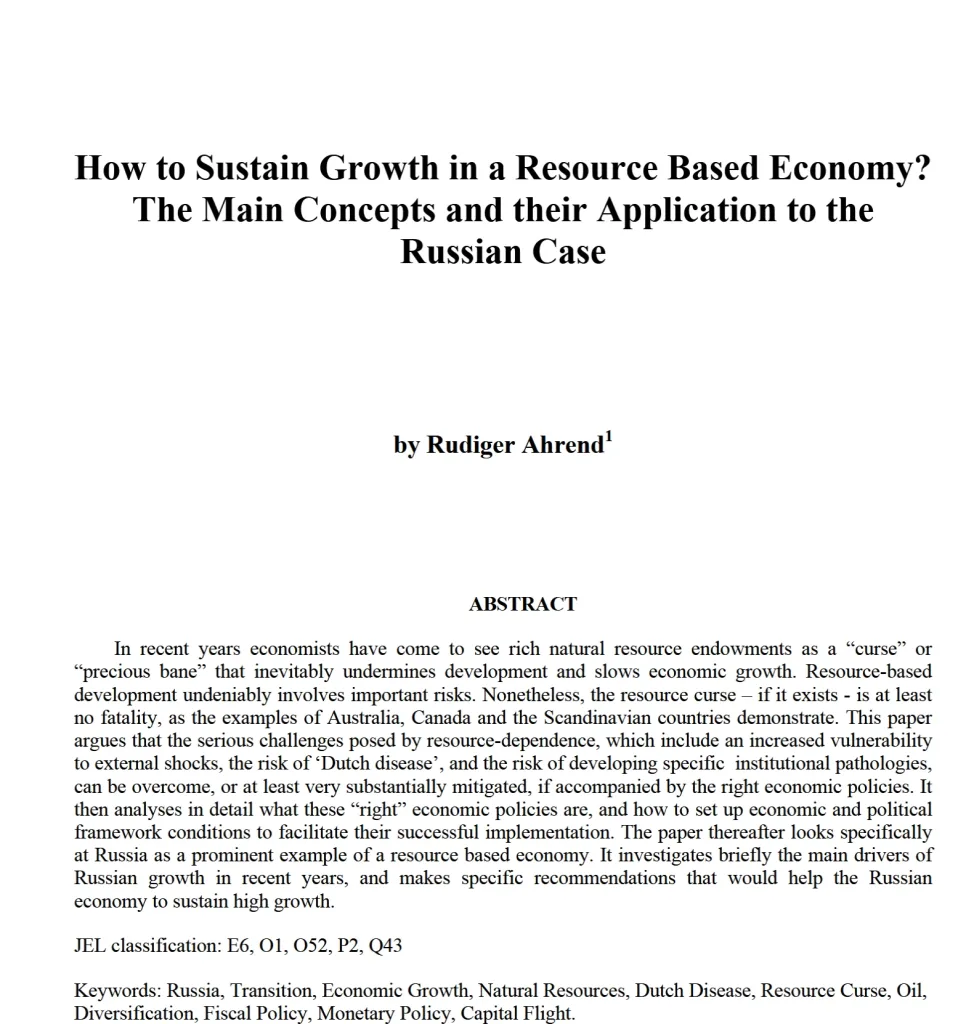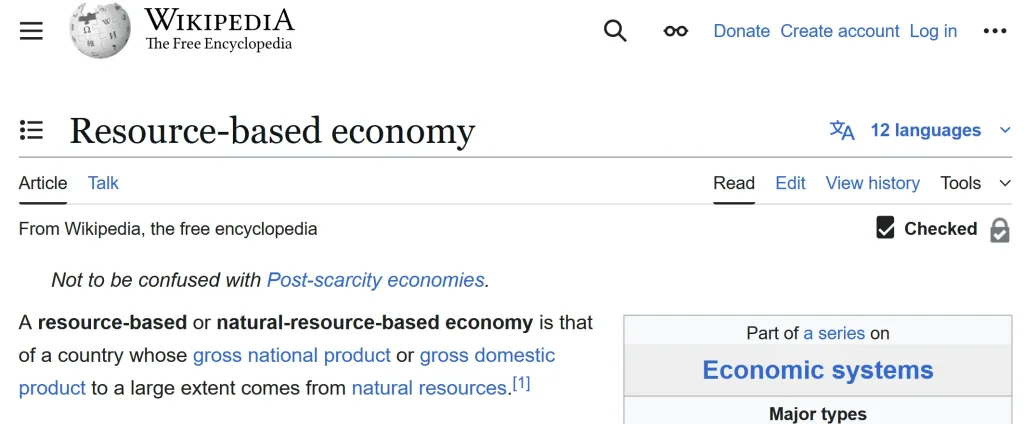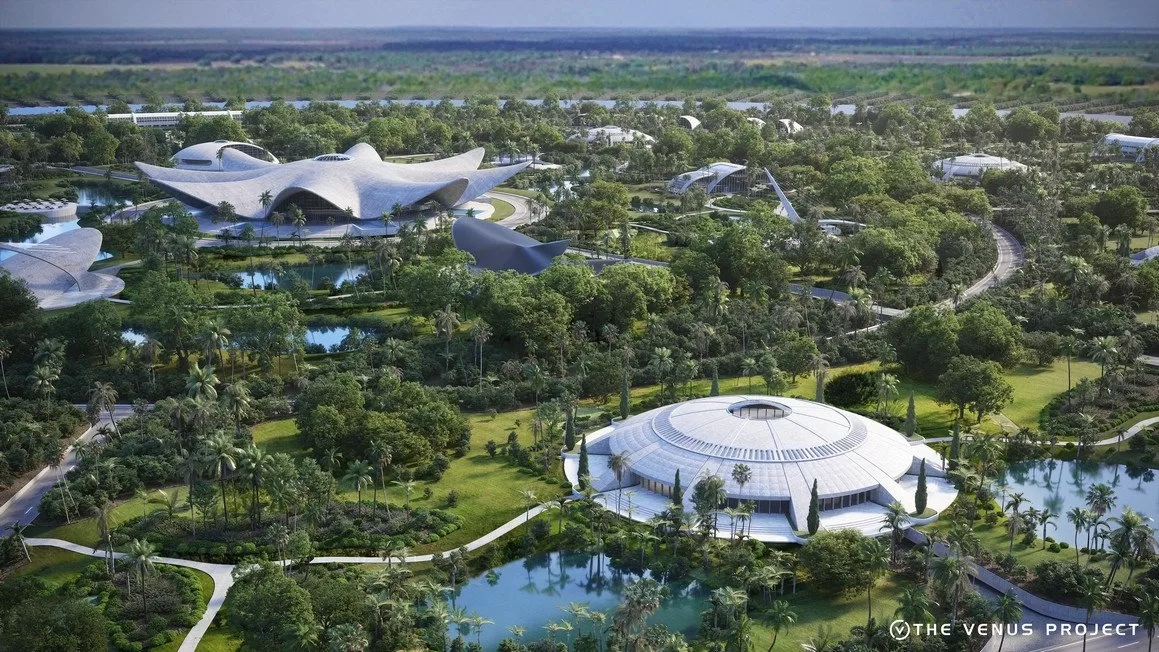Originally coined by Jacque Fresco, the term “Resource-Based Economy” (RBE) was intended to describe a radical redesign of society: a system where goods and services are available to all without the use of money, trade, or debt. In such a model, decisions are based on scientific analysis and resource management, production is automated, and distribution is governed by human need, not profit.
However, in contemporary discourse, the term has an unintended and problematic association. In mainstream economics and policy discourse, a resource-based economy refers to something entirely different — a country whose economic health is dependent on exporting raw materials, such as oil, gas, timber, or minerals. Think Russia, Nigeria, Venezuela, or Kazakhstan.

For example, the United Nations Economic Commission for Europe uses the term in this conventional way. A 2005 UNECE report on “Resource-based Economies in Eastern Europe and Central Asia” describes such economies as those vulnerable to price fluctuations of raw exports and subject to instability, corruption, and inequality.
This presents a real communication problem. When someone hears or reads the phrase “Resource-Based Economy,” they are more likely to picture pipelines, mining operations, or rentier states — not a high-tech, automated, post-scarcity society.
Likewise, Wikipedia defines it clearly:
“A resource-based economy is one that relies on the export of natural resources.”

Why Terminology Matters
Language isn’t just semantics. It shapes perception. If the name of your proposed economic system already exists in the public lexicon and means something completely different, it creates confusion and weakens your message.
This is not just a branding issue, but a conceptual one. The original vision of an RBE is ambitious and scientific. Yet the term used to describe it is already occupied by an economic model that is almost the opposite: primitive extractivism, not advanced systems thinking.
What Could Be Better?
We may need a new term that clearly communicates:
- A departure from trade and markets
- Automation and cybernetic control
- Needs-based distribution
- Elimination of waste and planned obsolescence
- Integration of science, technology, and sustainability
Some have proposed alternatives like “Post-Scarcity Economy,” “Cybernetic Economy,” or simply “Science-Based Economy.” Each has pros and cons, but all at least avoid the confusion of suggesting oil pipelines and GDP volatility.
Conclusion
If we want the ideas of Jacque Fresco to be understood, discussed, and developed further, we must ensure our language doesn’t betray us. “Resource-Based Economy” was a visionary term in its time, but today, it risks being mistaken for the very thing it seeks to overcome.
It may be time for a new name — one that reflects the true direction of a sustainable, science-driven future.

I have been at the center of all this dirrection for over 13 years and can tell you a lot of things, from detailed explanation of Jacque Fresco’s original proposals, to experience of working with the movement, to little known and insider information.
I have organized the most successful and effective team of The Venus Project movement, now represented by Designing The Future, as well as the 1.5 million subscriber Jacque Fresco channel, small and large events, radio and TV interviews, working with universities and schools, organizing events, running a network of groups in 60 cities with regular meetings, and much more. Exposed and fought fraudulent companies and initiatives to protect The Venus Project’s reputation.
Organized and negotiated the construction of The Venus Project’s smart city, with the then living Jacque Fresco, which was their best chance. This has now evolved into a full-fledged smart city project and test site for the development of the entire industry of smart cities, called “Mission on Earth”, which will be launched soon, late 2024-early 2025, and we’re directly involved.
After the new directors of The Venus Project changed course, I strongly opposed it without hesitation, especially knowing the details of the gamble – taking the side of Jacque Fresco’s original ideas. Whatever the outcomes, I will continue what I have started, with the goal of giving humanity a chance to move toward a resource-based economy, or at least to point society in the right direction. I hope you will join us.

